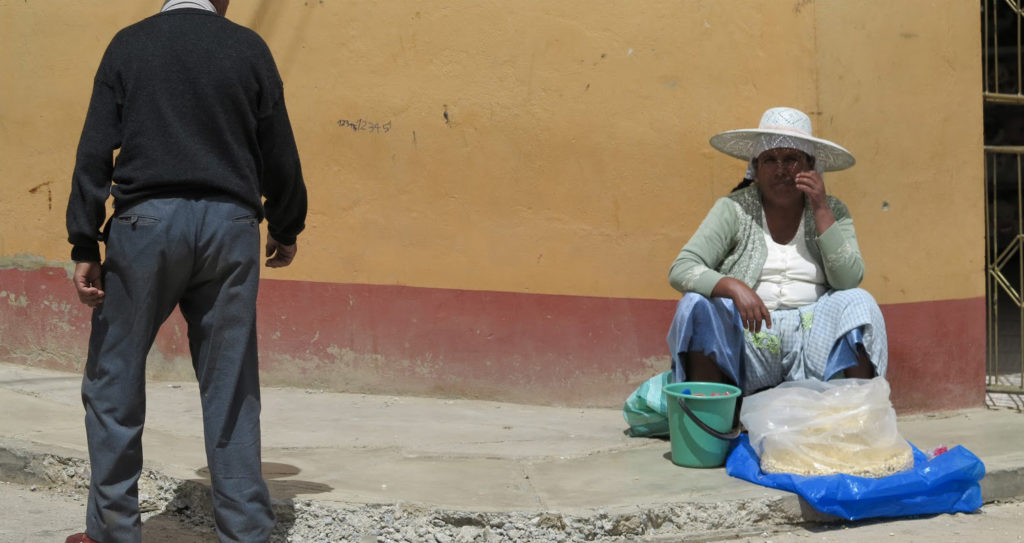
Street vendor in Cochabamba (Photo by Sonny Nguyen)
We say that we should love our neighbor as we love ourselves. With Bolivia’s severe quarantine restrictions being enforced by the military and the police, this has become more of a challenge. We have heard many people say that this is a unique time. Unique was my Monday.
Mondays is the one day of the week I allowed to leave the house to shop for basic necessities. To be honest, one of my basic necessities is just to get outside once a week for a change of venue. Cooped up all week, I find myself looking forward to just getting out to see what is happening on the street, what is new and what is being sold. Mixed motives I have.
Part of me says I should only purchase vegetables and fruits from the supermarkets or major outdoor markets as it seems safer. Another part of me says that the street vendors who move their wheelbarrow about on the street need the income more, so I should set aside my health concerns and purchase from them. Internally conflicted I am.
Last Monday two indigenous women were selling lemons side by side on the sidewalk, their products displayed over a small piece of plastic. Looking at their long faces, I could tell that they had seen many sunrises and sunsets. I could also tell that they were having little success. Sure, I could use some lemons, I thought. At first I asked one of the ladies for the equivalent of seven bolivianos (about one dollar) of lemons. I gave her a Bolivian bank note worth ten bolivianos. She began to look for change. My heart told me to tell her to keep the change. I told her so and her face brightened and beneath her scarf I detected a smile.
I began to move away when I noticed the sadness of her fellow street vendor. What the heck, I thought. I stopped and made the identical purchase and also told the second lady to keep the change. When I then wiped my hands with disinfectant, I wondered what message I was sending them. Do they feel that they have become second-class citizens? Have they become our modern-day lepers? Have they done something to be socially suspicious? Mixed emotions I have.
Turning my bicycle toward home, a military officer directed me to head toward a man with a disinfectant sprayer. I hesitated because it was cloudy and I didn’t want to get wet. Also I stay clean, I’m healthy, and I’m not “socially suspicious.”
Reflecting on the street vendors and the message I had given them by disinfecting my hands immediately after touching the lemons, I decided to accept this “anti-COVID-19 baptism.” The officer thoroughly bathed my bicycle, my purchases, and me with the disinfectant. Now I had a little idea of the feelings of the lemon vendors. My turn to be “suspicious,” I thought.
Then a young man, no more than 20 years old, called me over, “Señora, Señora, cómprese, por favor, cuatro dulces por un boliviano.” (Madam, Madam, please buy some candies, four for one boliviano or about seven cents). He appeared to be one of the many Venezuelan immigrants who have arrived in Bolivia during the last year. Before the COVID-19 pandemic, we would encounter many Venezuelans on the streets, selling just about anything in order to be able to buy basic necessities.
Yeah sure, I thought, I will buy some. I handed him five bolivianos. He wanted to give me 20 candies. Looking at his long face, I caught his eyes and told him to keep all the candies. He asked, “Are you sure, Lady?” “Que sí” (Oh yes), I told him.
He had a huge smile on his face, which seemed to light up the sidewalk on this overcast day. He stood up straight, looked me up and down and said, “Que te vaya bien! Que te vaya re bien!” (Have a nice day! Have a super nice day!)
Returning home, I told my husband and children about my experience with the street vendors, especially the Venezuelan. I wish I could say I had planned all that out, I told them. No, they told me, you were learning something important. Finding a new way to express neighborly love, blessed am I.

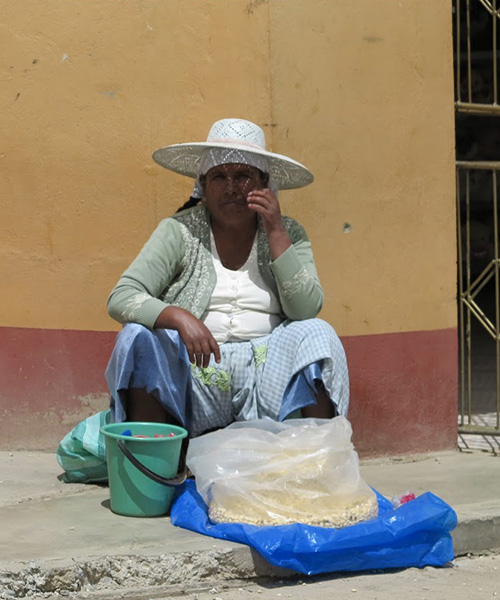

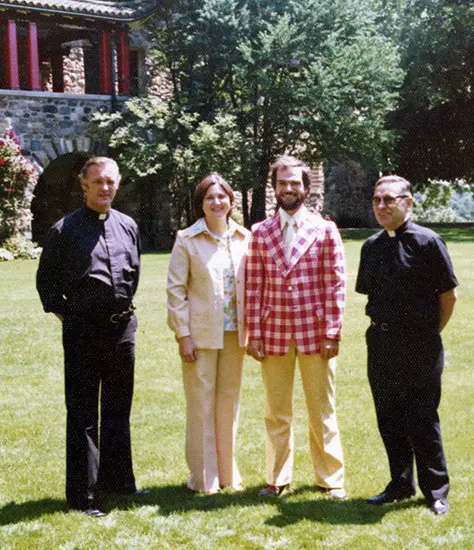
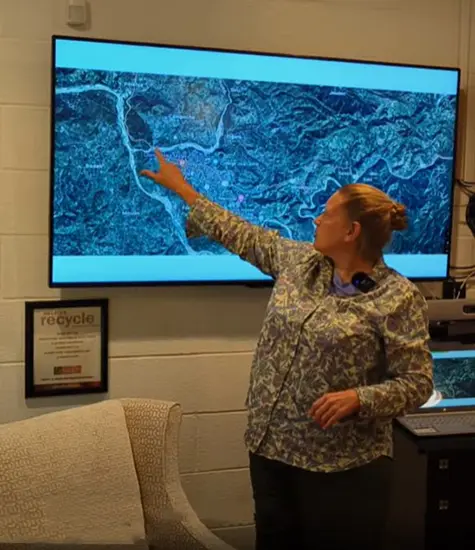
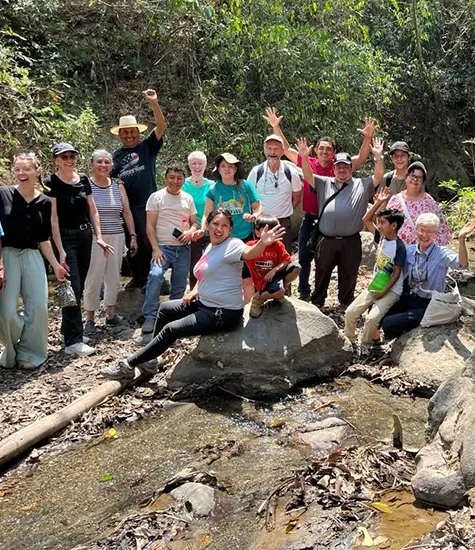




Thanks FILO, for your beautiful way to see life!